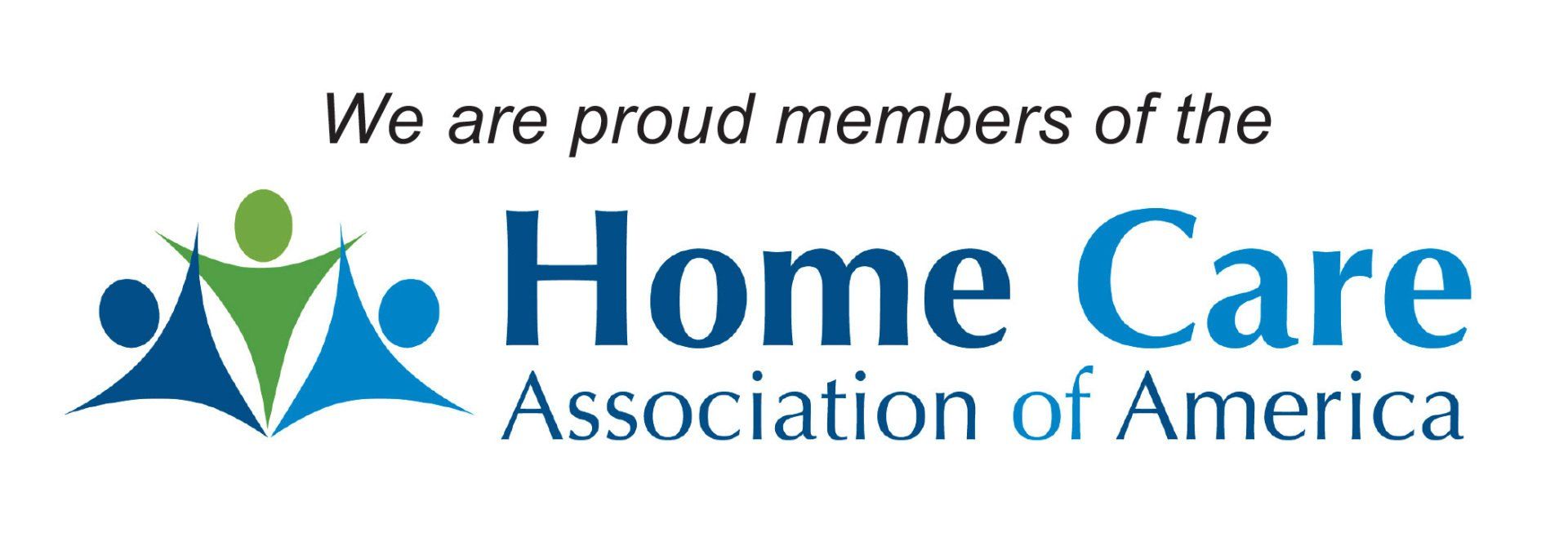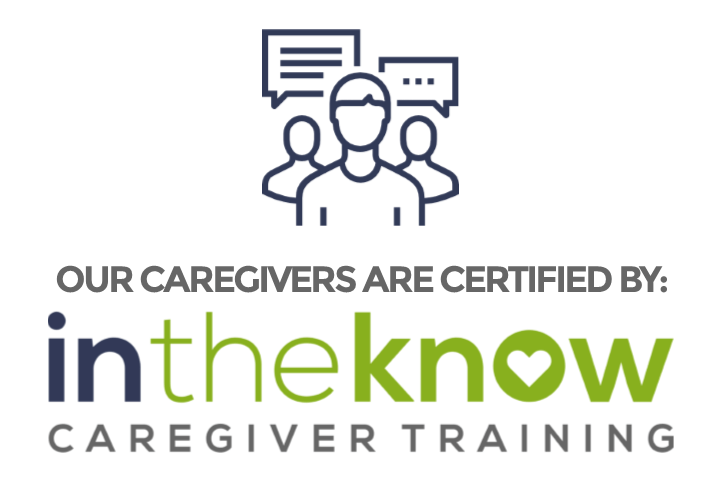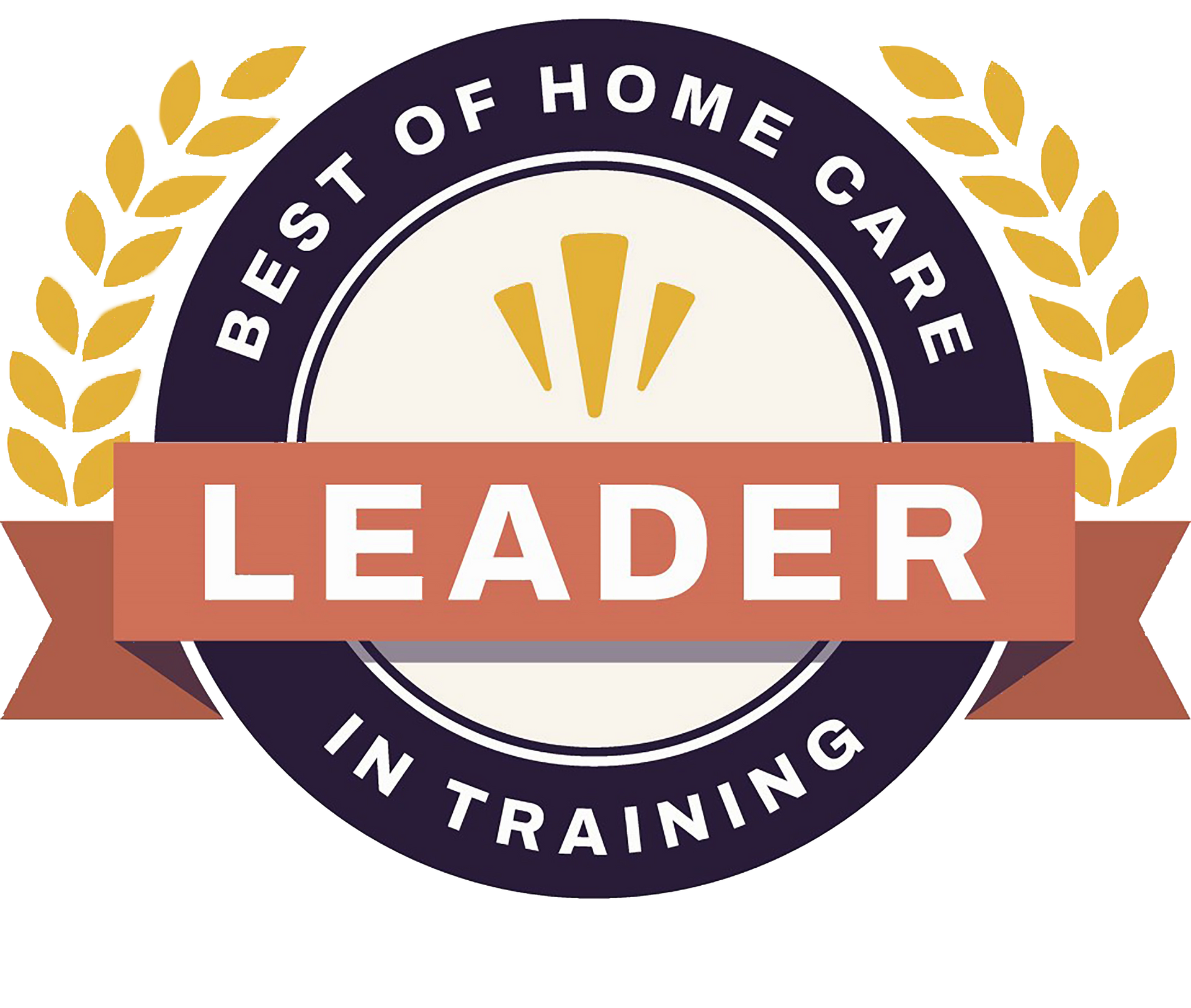Blog

November 21, 2025
We’re excited to announce that we’ve been named a 2025 Top Workplace by the Chicago Tribune! This award celebrates organizations that foster a positive, engaging, and supportive work environment. We believe that an exceptional home care experience is made possible by a dedicated team united in their passion for serving others. The award was based on a comprehensive and confidential employee survey conducted by an independent third party. “We are deeply honored by this recognition and what it represents,” said Vera Lampe, CEO. “I’m filled with gratitude for our extraordinary staff, our board of directors, and the clients and families whom we have the privilege to serve every day.” The findings affirm that Partners in Healthcare is a home care agency defined by compassion, respect, and genuine connection. Team members take pride in their work, and their commitment is evident in the care and support they provide daily. Here are a few highlights from what our team shared: “Every day brings an opportunity to make someone’s life better, and that’s incredibly fulfilling.” “There’s a sense of purpose and belonging at Partners in Healthcare—the team genuinely cares.” “I get to do what I love, which is helping others.”

October 9, 2024
For over 30 years, Partners in Healthcare has been providing exceptional private duty caregiver services to clients in the Chicago area. Whether your health needs are short-term or extended, we pride ourselves on flexibility while supporting each person's independence and peace of mind. To fully understand what makes our caregiver agency so special, we think our clients and their families give the best perspective of all: “I’ve had the same caregiver, Lorna, for many years and she’s done such a wonderful job. She helps with whatever I need and is always dependable. She’s also become a dear friend.” ~ Trudy B. “The day I reached out to Partners in Healthcare, my life was changed! My mom required 24-hour care in her home and their immediate response to our needs was simply exceptional. It gave me a peace of mind I never imagined. My initial meeting with their administrative staff was excellent, and the whole process was clear, concise, and thorough. It’s difficult to find the words to adequately express my gratitude to my mom’s caregivers. We are now beginning our fourth year together. These wonderful people are so diligent, so very kind, and have gone above and beyond caring for her. They have become family. I continually recommend Partners in Healthcare as the most extraordinary and dedicated healthcare agency for loved ones.” ~ Joanie M. “Thank you so much for all you’ve done for my mom. I can hear the difference in her voice when she has had ‘people’ with her...I honestly don’t know what we would have done without your services. Under the circumstances, you are angels for my family and me!” ~ Julie W. “Our family’s interactions with Partners in Healthcare have been first-rate. The management team members are insightful, responsive, accessible, and reliable. They work hard to assign highly skilled and experienced caregivers to meet the specific and evolving needs of their clients. The agency treats their caregivers with respect, which is likely why the quality of caregivers & their retention rate is significant!” ~ Judy S. “Maria has been a loving, loyal, and dependable caregiver. I am so appreciative that she is part of my mother's life. She is a rare person that really cares about the welfare of her patients. She truly takes the time to make sure my mom and her living space are as safe as possible. Maria has shown extreme flexibility in adjusting her schedule to meet my mother's needs, even giving up a Sunday so she could bring my mom to a family parade hosted by Chestnut Square. Knowing that Maria is caring for mom, I immediately feel a sense of calm and peace because I’m certain that she will be cared for with the respect and diligence that she deserves. Thank you for all your help.” ~ Julie C. “Mom loves her caregiver, Luisa, because she is very gentle and attentive, and always looks out for her. She carefully listens, fixes up mom in the morning including her hair and picking out her favorite clothes, helps her with meals, and keeps her room very clean. Luisa often goes for walks with her and even takes my mom to get pedicures. We always know that mom is in good, safe hands with Luisa. We greatly appreciate her and are very thankful for her professionalism, friendship, patience, kindness, and making mom’s day brighter as she continues to recover from her hospital stay.” ~ Ron S. and Patrice C. CONTACT US TODAY Partners in Healthcare is a licensed, bonded and fully insured home care agency, and a member of the Home Care Association of America. We have also been awarded a “Best of Home Care Leader in Training” by Home Care Pulse, which is recognized by the Alzheimer’s Association for high-quality, person-centered Alzheimer’s and Dementia training. To learn more and schedule a free client assessment, please call (847) 904-5113 or visit www.partners-healthcare.com
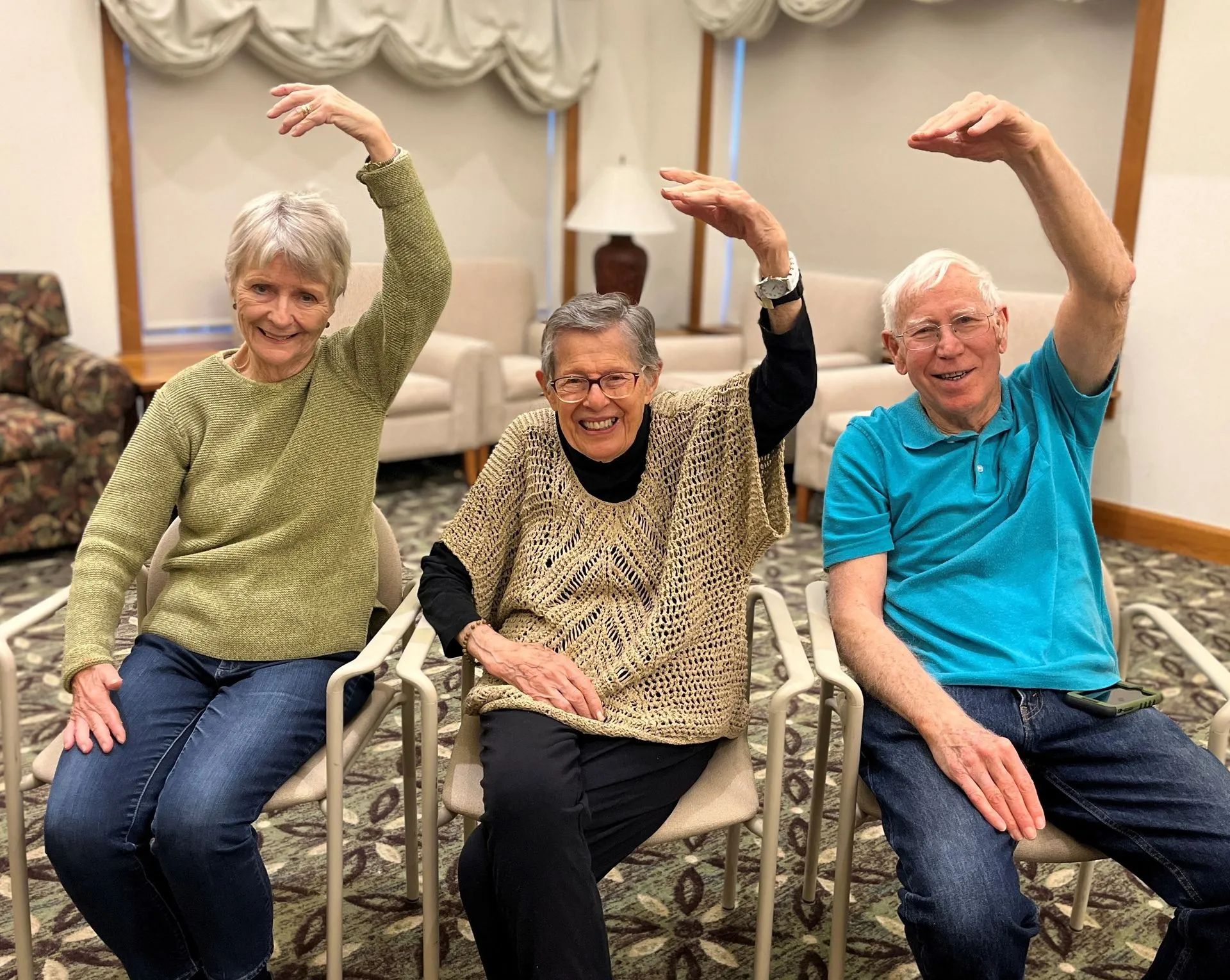
September 17, 2024
If you frequently misplace your reading glasses or forget the name of a casual acquaintance, you're certainly not alone. While some forms of memory loss, such as dementia and Alzheimer’s, require medical attention, there is also normal age-related cognitive decline that nearly all people experience once they reach their 70s or 80s. These “normal” changes can still be frustrating and pose challenges, but thankfully, studies have shown some specific steps that seniors can take to strengthen their overall brain health—and possibly even prevent more serious memory decline: 1. Get a good night’s sleep Decades of research supports the fact that sleep is a critical time when memories consolidate and get stored. And that means missing out on sleep—or high enough quality sleep—can compromise some of those processes. The National Sleep Foundation recommends getting between seven and nine hours of sleep each night for optimal health and brain function. 2. Exercise regularly What is exercise not good for? A recent finding from the American Academy of Neurology suggests that regular exercise is one of the most important things that people with mild memory problems can do to help stop those symptoms from getting worse—or turning into serious neurological disorders like Alzheimer’s disease. 3. Repeat or re-learn the information later Psychologists and others call this one the “spacing effect.” The idea is that the more you re-learn or remind yourself of information again and again, spaced out over time, the better you’ll retain that information in the long run. Perhaps you first learn about an Olympic swimmer’s difficult upbringing by watching a news clip of his story; then a day or so later you read an article about that same swimmer; and then a few days later a friend starts telling you about the same swimmer’s story. 4. Test yourself People often think testing is useful because it tells you what you know and what you don’t. But the more important power of testing is providing practice for retrieving information that you’ve learned and establishing that connection in the brain, explains Rosalind Potts, PhD, of University College London. For example, in one study that tested a group of students on new information they had learned one week earlier, students who were also tested on the new information immediately after learning it outperformed students who were simply instructed to study the information and wait for the final test. 5. Put the information in your “memory palace” The idea is if you want to remember something, such as a shopping list or a code, you visualize those items or numbers in different rooms of your house (or some other physical place you are very familiar with). The “memory palace” approach (also called the “Method of Loci”) has been studied extensively in psychology, and research shows it can be more valuable in terms of remembering than pure intellectual capacity, and also more effective than straightforward repetition and memorization. 6. Use a mnemonic device It’s easier to remember things that relate to knowledge we already have because we can connect it to past memories. For example, if you want to remember the meaning of the Spanish word “zumo” (“juice” in English), you might conjure up an image in your head of a sumo wrestler drinking juice. When you hear the word “zumo,” you'll then think of that sumo wrestler drinking his juice and remember the definition. 7. Pay attention How many Americans could accurately draw the details of the dollar bill, even though we likely look at it all the time? When trying to memorize something, we’re often distracted by peripheral cues such as nearby people or noises. However, if we choose to completely focus our attention on something (even for a few seconds), it’s amazing how much stronger our long-term recall can be. 8. Make it relevant to your life Based on the neuroscience explanation of how memory works, if you really want to remember something, your best bet is trying to connect it to some other part of your life or a topic you already know, says Blake Richards, DPhil, assistant professor in the Department of Biological Sciences at the Canadian Institute for Advanced Research. “Figure out some other facet of life for why it’s relevant—and use it.” About Partners in Healthcare Whether you or your loved one's health needs are short-term or extended, Partners in Healthcare is the perfect solution. Featuring no up-front deposits and a free client assessment with no obligation, a customized plan of care is provided for every situation. We are a licensed, bonded and fully insured home care agency, and a member of the Home Care Association of America. Partners in Healthcare has also been awarded a “Best of Home Care Leader in Training” by Home Care Pulse, which is recognized by the Alzheimer’s Association for high-quality, person-centered Alzheimer’s and Dementia training. To learn more about flexible caregiver options from Partners in Healthcare, please call (847) 904-5113 or visit www.partners-healthcare.com

August 27, 2024
As people age and face health challenges, they often require assistance with daily tasks that can become overwhelming. Knowing when it’s time to seek additional support can be a stressful process for families to navigate, so recognizing the signs to look for is crucial. Here are some of the key indicators from Partners in Healthcare to help you determine when it's time to seek caregiver assistance: 1. Decline in Physical Health One of the most noticeable signs that a caregiver may be needed is a significant decline in physical health. This can manifest in several ways: Mobility Issues: Difficulty walking, frequent falls, or problems with balance can make everyday tasks more dangerous such as walking throughout the house or using the bathroom. Chronic Pain or Illness: If you or a loved one are managing conditions like arthritis, heart disease, or diabetes, keeping track of medication and regular monitoring is crucial. A caregiver can provide vital support and ensure better health. Weight Loss or Poor Nutrition: Unintentional weight loss, poor appetite, or difficulty preparing meals can indicate that a person is struggling with self-care and could benefit from help cooking in the kitchen or making a list and going to the grocery store. 2. Cognitive Decline Cognitive issues such as memory loss, confusion, or difficulty with problem-solving can be signs that additional support is needed. This includes: Forgetfulness: Forgetting to take medication, pay bills, or attend appointments can be red flags and are also easily resolved with a caregiver. Disorientation: Getting lost in familiar places or showing signs of confusion about time and place. Difficulty with Daily Activities: Struggling with personal hygiene, getting dressed, or keeping a living space tidy can impact quality of life. Sometimes, just a bit of help with laundry or assistance with showering or shaving can make a world of difference. 3. Safety Concerns Ensuring safety is a primary concern when assessing the need for a caregiver: Home Safety Hazards: Is the home cluttered or poorly maintained? These conditions can increase the risk of accidents and impact well-being, both physically and financially. Difficulty Managing Finances: Trouble managing finances or paying bills on time can indicate a need for support. Risk of Self-Harm: Signs of neglecting personal care or increased risk of accidents, such as leaving the stove on or not locking doors. 4. Family Dynamics and Resources Deciding to bring in a caregiver isn’t just about you or your loved one’s needs—it’s also about what family members can handle: Family Considerations: If family members are feeling overwhelmed or stressed by the demands of caregiving, it might be time to consider professional help. “A daughter who had been caring for their mom decided it was finally time to hire a caregiver because they were getting burned out,” explains Sharon Oidem, Director of Partners in Healthcare. “By having that additional support, the daughter was able to feel like a daughter again." Lack of Time: Juggling a busy schedule or living far away can make it difficult to provide the level of care your loved one needs. A professional caregiver can fill in those gaps and ensure your loved one is always supported. Financial Considerations: It’s also important to consider whether your family has the resources to hire a caregiver. While it can be an investment, the peace of mind it brings is often invaluable. Contact Us: Whether you or your loved one's health needs are short-term or extended, Partners in Healthcare is here to support each client’s independence and dignity. Featuring no up-front deposits and a free client assessment with no obligation, a customized plan of care is provided for every situation. We are a licensed, bonded and fully insured home care agency, and a member of the Home Care Association of America. Partners in Healthcare has also been awarded a “Best of Home Care Leader in Training” by Home Care Pulse, which is recognized by the Alzheimer’s Association for high-quality, person-centered Alzheimer’s and Dementia training. To learn more about flexible caregiver options from Partners in Healthcare, please call (847) 904-5113 or visit www.partners-healthcare.com
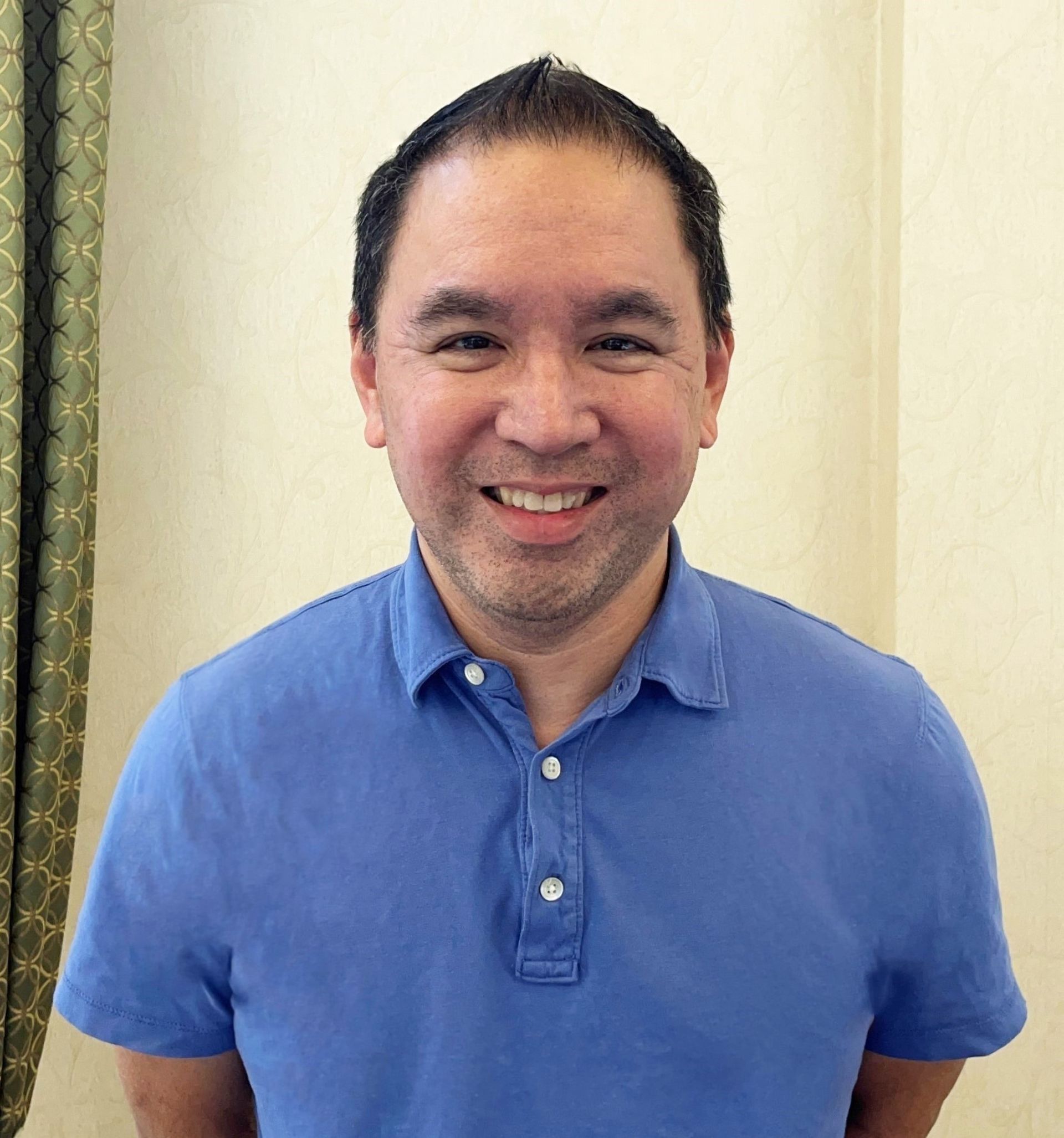
August 8, 2024
At Partners in Healthcare, our mission is clear: to create meaningful connections that enhance the lives of older adults. Ernie Ejanda, one of our exceptional caregivers, embodies this commitment with every client that he serves. “My mom was a nurse, and I could always see how much she loved her job. She inspired me to care for people and that’s something I’m extremely grateful for,” Ernie explains. “Being able to form deep connections with my clients means everything to me. The seniors I serve look forward to seeing me, and I look forward to seeing them, too!” This summer, Ernie experienced one of the most bittersweet moments of his life when a client on hospice care, who never had any children, shared how much Ernie had meant to him. “He told me that I was the son he never had,” Ernie recalls. “It was an emotional moment for both of us, and I’ll cherish that memory for the rest of my life.” Experience the compassionate care that defines Partners in Healthcare—where every client is like family. Whether you're seeking flexible caregiver options for yourself or a loved one, we're here to support you. Contact us at (847) 904-5113 or visit www.partners-healthcare.com to learn more.

July 17, 2024
It is often said that “laughter is the best medicine,” and as it turns out, numerous medical studies have confirmed that there’s quite a bit of truth behind this claim. Regardless of our age, the benefits of laughter are tangible: Soothes tension. Laughter can stimulate circulation and muscle relaxation, which can help reduce some physical symptoms of stress. Improves your immune system. Positive thoughts (the kind you get while laughing) release neuropeptides that help fight stress and potentially more serious illnesses. Relieves pain. Believe it or not, laughter can cause the body to make its own natural pain relievers that might make you feel better. Connect with people and deal with difficult situations. Think about a time you went through something hard and someone made a joke to make you feel better. Sometimes it works. Try it. Also, don’t you feel more bonded with friends and family when you share a good laugh? Stimulates organs and increases endorphins. Laughing boosts your intake of oxygen-rich air, stimulates your heart and muscles and enhances the endorphins released by your brain. Endorphins trigger a positive feeling in the body. Improves your mood. Laughter can help lessen depression and anxiety and make you feel better overall. Burns calories and increases blood flow. If you’ve ever noticed that laughing heavily for a long stretch leaves your face and abdomen sore, it’s because dozens of different muscles in your body are being activated in the process. MAKING TIME TO LAUGH EACH DAY Much like exercise, we can make a conscious decision to laugh for a certain number of minutes each day—even if it feels forced at first. Health journalist Jocelyn Solis-Moreira revealed the following methods for incorporating more laughter into our everyday lives: Laughter yoga: This form of yoga consists of prolonged voluntary laughing, clapping, and deep abdominal breathing techniques. Studies have found that laughter yoga effectively decreased anxiety and stress and improved mood. Click here to watch a 5-minute laughter yoga session from the Mayo Clinic. Make time for the optimistic people in your life: Find laughter by interacting with upbeat family members and friends, while avoiding individuals who are often negative or toxic. Even a 15-minute phone call or video chat can make a huge difference. Check out some comedy: Turning on your favorite sitcom, reading a funny book, or scrolling through funny pet videos on the internet are all easy steps to instantly boost your mood and produce laughter. Don't be afraid to laugh: While people tend to suppress their laughter in public due to fears of feeling judged, laughing at everyday situations, and even at yourself, are very healthy habits. To learn about flexible caregiver options from Partners in Healthcare, please call (847) 904-5113 or visit www.partners-healthcare.com

May 14, 2024
Nearly 50 percent of Americans aged 65 and over suffer from arthritis, according to the Centers for Disease Control and Prevention. Osteoarthritis is the most prevalent form, though gout, fibromyalgia, and rheumatoid arthritis are other very common rheumatic conditions. For seniors, arthritis can result in unpleasant complications such as debilitating pain, reduced mobility, joint swelling and stiffness, thinning bones and skin rashes. Every case of arthritis requires its own unique treatment so consulting with a medical professional is always the recommended first step. However, in addition to medical intervention, there are also many lifestyle changes that can be made to lessen—and even reverse—arthritic pain. EATING THE RIGHT FOODS : According to the Arthritis Foundation, a diet rich in fruits, vegetables, fish, nuts and beans is not only great for overall health, but can also help manage disease activity. If this advice sounds familiar, it’s because these are the principles of the Mediterranean diet, which is frequently touted for its anti-aging and disease-fighting powers. Studies confirm that eating foods commonly found in the Mediterranean diet can reduce arthritic inflammation, heal joints, lower blood pressure, protect against chronic conditions, and lead to weight loss (further lessening the overall pressure on your joints). LOW-IMPACT EXERCISES : Safe and enjoyable senior-friendly activities that promote flexibility and range of motion, while still being gentle on your joints, include swimming, yoga, tai chi, walking, cycling, elliptical machines, and stretching exercises. Be sure to gradually ease your way into any new fitness routine so that you can monitor any adverse reactions which sometimes take a day or two to surface. FINDING A ONE-LEVEL FLOOR PLAN : Climbing stairs inside a house or condominium is one of the single biggest aggravators for arthritic pain in the knees, feet and back. Retirement communities that offer spacious 1 and 2-bedroom floor plans, with easy access to multiple elevators, have become an attractive destination for seniors looking to simply life. Many independent living communities, such as Chestnut Square at The Glen, also include a full kitchen and washer/dryer in every floor plan which makes the change of environment incredibly seamless. TEMPERATURE-BASED THERAPY : Heat treatments can include taking a warm shower or bath to help offset stiffness, or using an electric or moist heating pad to reduce discomfort at night. Cold treatments, on the other hand, can help reduce joint pain, swelling and inflammation. Wrap an ice pack in a towel and apply it to painful joints for rapid relief. Always avoid applying ice directly to the skin. Topical ointments and creams that contain capsaicin, conveniently available over the counter, can also provide warmth that soothes arthritis and joint pain. To learn more about Partners in Healthcare or to request a complimentary client assessment, please call us today at (847) 904-5113 or visit www.partners-healthcare.com

February 26, 2024
When you or a loved one is in need of a caregiver, there are various considerations to weigh—and none more important than whether to hire a self-employed caregiver or a caregiver from a homecare agency. To better understand the two options, we’ve put together this helpful guide that summarizes the key differences. Self-Employed: These caregivers work independently and usually find clients through word-of-mouth, social media, or matching websites. The management of the care is solely between the caregiver and the client. Agency-Employed: Homecare agencies like Partners in Healthcare are licensed by the state, and the agency directly manages its team of caregivers. After meeting with the client and/or their family, the agency determines a customized plan of care. The oversight of the caregiver/client relationship is primarily through the agency. COMPARING THE OPTIONS Every situation is unique, and some clients will prefer a caregiver that’s self-employed. That being said, there is more accountability, options, and overall peace of mind when using a licensed homecare agency like Partners in Healthcare. While the hourly rates from an agency are higher compared to the self-employed option, it’s because the agency is responsible for numerous crucial items. For example, Partners in Healthcare provides each of the following services: Extensive Screening of All Caregivers: Each caregiver goes through a thorough interview process including checking licenses, references, performing a background check, and health and drug testing. Ongoing Training and Oversight: Partners in Healthcare values keeping its team of caregivers up-to-date with best practices in the homecare industry. Additionally, all caregivers undergo regular performance evaluations. Professionally Accredited: Partners in Healthcare is licensed through the Illinois Department of Public Health, is bonded and fully insured, and provides workers’ compensation insurance. Our agency is also a member of the Home Care Association of America and In the Know Caregiver Training, which is recognized by the Alzheimer’s Association for high-quality, person-centered dementia training. Customized Plans of Care: We perform a complimentary client assessment to provide a personalized and detailed plan of care to meet specific needs. Clear Expectations and Accountability: Partners in Healthcare provides a service agreement for each client, confirming the services you can expect and count on. All caregivers are directly supervised by the agency’s homecare specialist. Flexibility for Clients: Unlike self-employed caregivers, Partners in Healthcare has on-call coverage 24 hours a day and will work with families to ensure that their needs are always met. Less Paperwork and Stress: Because caregivers are employed by Partners in Healthcare, our agency is responsible for issuing paychecks, withholding taxes, and providing employee benefits. OTHER FACTORS TO CONSIDER If choosing a self-employed caregiver, it’s important to remember that the client is responsible for drawing up service agreements and resolving any labor disputes. What’s more, there can be an increase in your homeowner’s or renter’s insurance to add short-term disability coverage for the caregiver. Clients are also responsible for ensuring that self-employed caregivers are performing their required duties. If any legal disputes arise, the client has the burden of navigating that process on their own. On the other hand, a licensed and trusted homecare agency like Partners in Healthcare is responsible for covering all these items and more. The peace of mind we offer clients and their families cannot be overstated! To learn more about Partners in Healthcare or to request a complimentary client assessment, please call us today at (847) 904-5113 or visit www.partners-healthcare.com
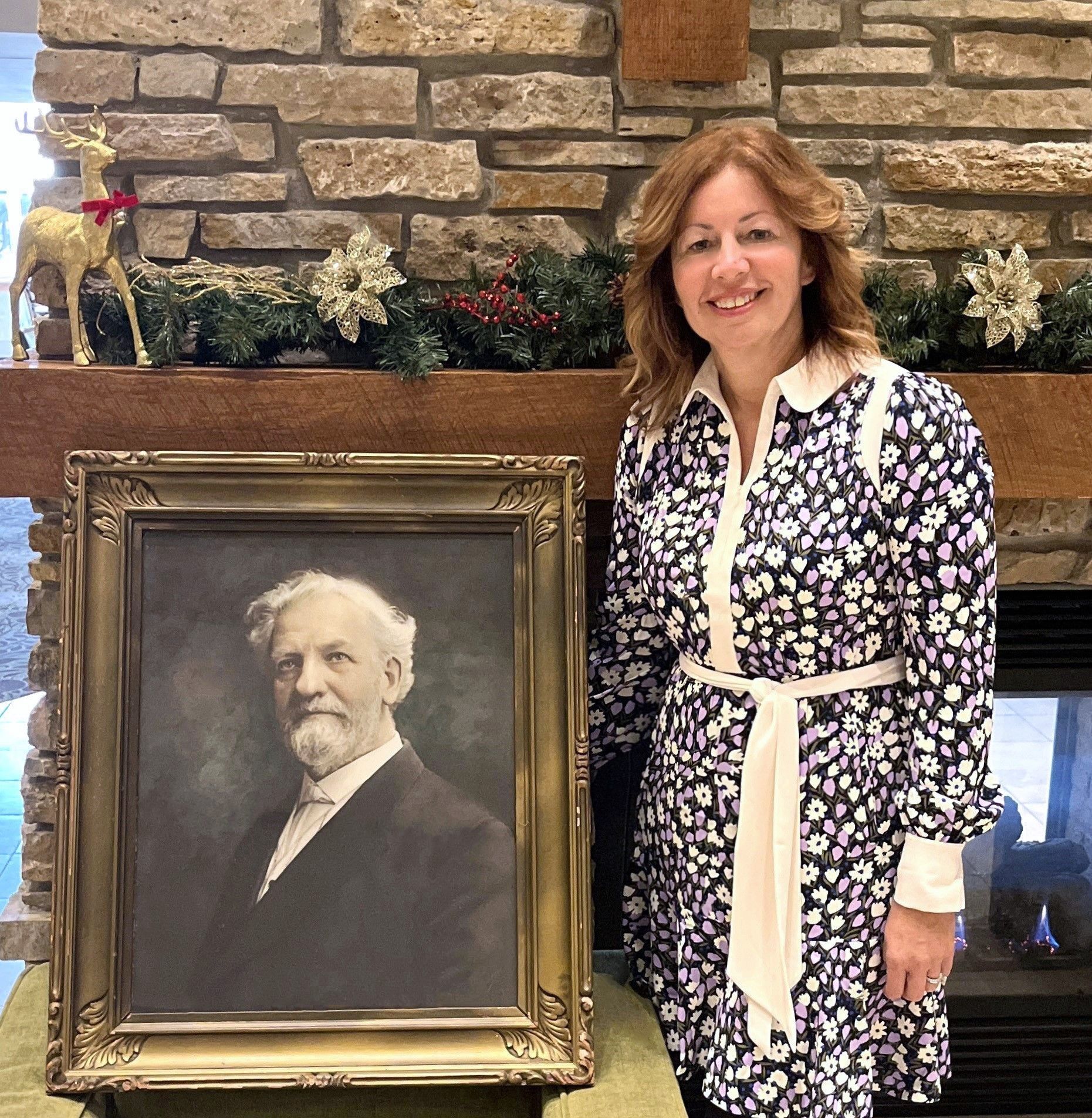
January 2, 2024
PICTURED: Vera poses next to the portrait of Alfred Anderson, the first chief executive of the organization. Bethany Methodist Corporation, a Glenview-based non-profit organization with a 135-year history of providing exceptional senior community living and healthcare, is thrilled to announce the appointment of Vera Lampe as its new CEO effective January 1, 2024. Vera has been a member of the Bethany Methodist management team for 16 years, the last 14 as Executive Director of Chestnut Square at The Glen, the organization’s flagship retirement community in Glenview. “I’ve had the pleasure of knowing Vera since she first joined the company in 2007, and I can’t think of anyone better prepared to lead us into the next chapter of our story than her,” said Sunny Lopez, who is retiring as CEO after four years in the position and 32 years with the company. "Thanks to Vera's leadership, Chestnut Square has become one of the North Shore's most popular destinations for independent senior living." Jennifer Christy, Chair of the Bethany Methodist Board of Directors, shared her thoughts as well. “Vera will be the eighth CEO of Bethany Methodist since its founding in 1889, and she brings competence, compassion, and an unflinching commitment to our mission. We believe her outstanding leadership, experience and dedication will be invaluable in guiding the organization on our path to a thriving future.” As CEO, Vera will have responsibility for business strategy, business development, operations, and the financial performance of Chestnut Square at The Glen as well as Partners in Healthcare, the organization’s private duty caregiver agency that serves clients throughout the Chicago area. “The heartbeat of our mission has always been the shared sense of community between staff, residents, clients and families,” said Lampe. “This organization has held a special place in my heart for a long time, and I’m honored to be serving in this new role and for the opportunities ahead.”
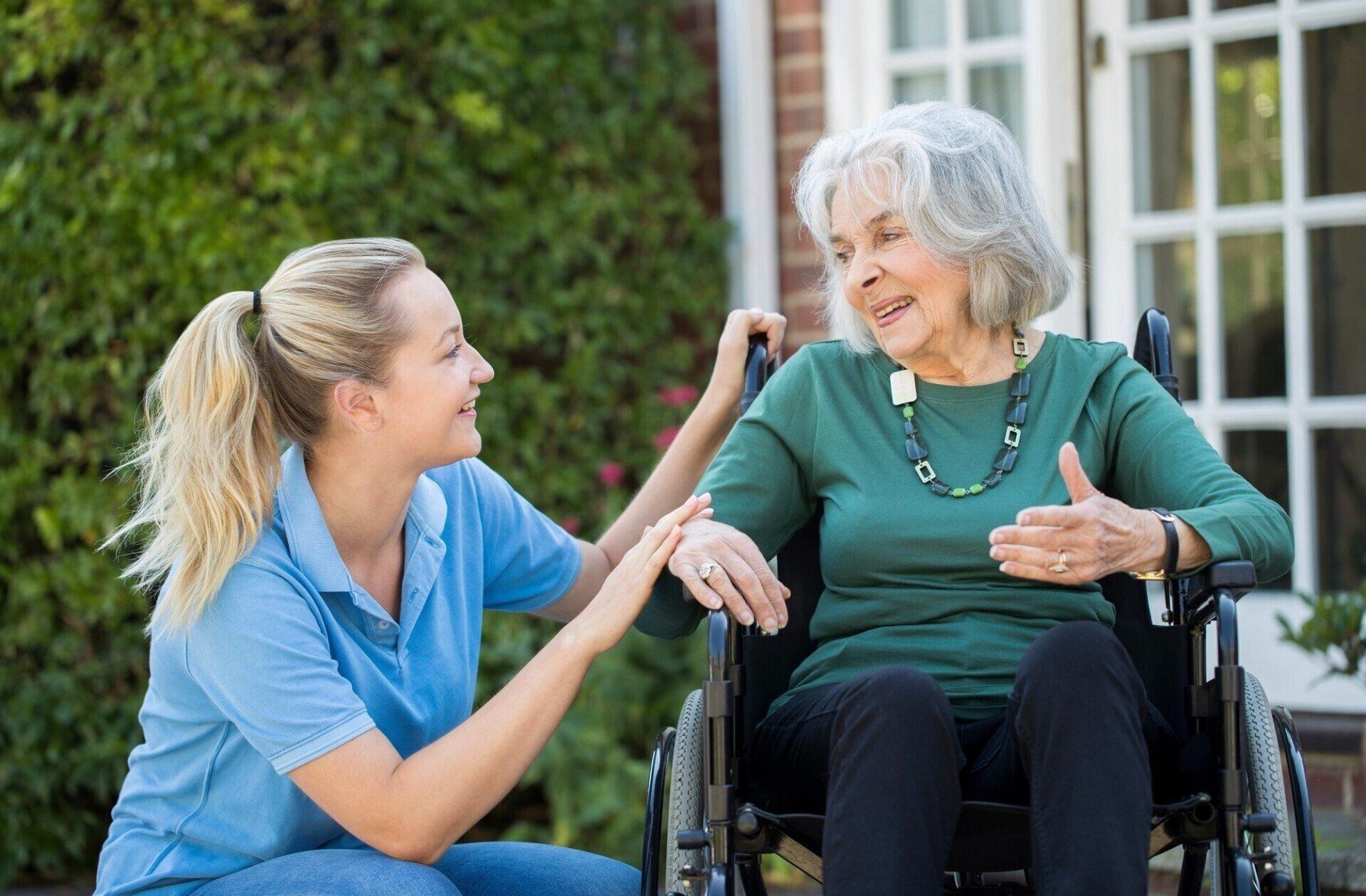
December 9, 2021
Talking to a senior parent or loved one about hiring a caregiver is a situation that millions of families face each year, yet knowing the right time to broach the subject is often a great challenge. Sometimes, when a person’s health is in decline, they can compensate—or even conceal—the struggles they’re facing for a prolonged period. Other times, a son, daughter, or spouse will take on the caregiving responsibilities until the task becomes too large. According to the National Institute on Aging , some of the most common signs that a loved one’s health requires intervention are: Hoarding Failure to take essential medications or refusal to seek medical treatment for serious illness Leaving a burning stove unattended Poor hygiene Not wearing suitable clothing for the weather Confusion Inability to attend to housekeeping Dehydration Unsafe driving When you notice signs that your aging parent or relative needs help, it’s important to know what steps to take next. Some signs may require a simple fix, like needing new glasses or a new medication. But other times, you may need to enlist additional support. For seniors who wish to remain in the comfort of their own home, a private duty caregiver agency like Partners in Healthcare can offer wonderful flexibility and peace of mind for everyone involved. Caregiver coverage can meet the specific needs of each client, whether it’s a few hours per week, full-time care, or anything in between. Available services can include: Meal preparation Medication reminders Housekeeping Medical appointment assistance Activity engagement Bathing Shopping Personal care Assistance with Activities of Daily Living (ADL’s) Dementia care Companionship Remember that the conversation with your loved one will be an ongoing process, so keeping a positive attitude and encouraging their input is key. Be sure to also highlight that the decision isn’t about “losing independence,” but rather, regaining independence and having a flexible plan for the future that allows them to remain in the place they love most…home! To learn more about private duty caregiver services from Partners in Healthcare, please call (847) 904-5113 or visit www.partners-healthcare.com
Blog

November 21, 2025
We’re excited to announce that we’ve been named a 2025 Top Workplace by the Chicago Tribune! This award celebrates organizations that foster a positive, engaging, and supportive work environment. We believe that an exceptional home care experience is made possible by a dedicated team united in their passion for serving others. The award was based on a comprehensive and confidential employee survey conducted by an independent third party. “We are deeply honored by this recognition and what it represents,” said Vera Lampe, CEO. “I’m filled with gratitude for our extraordinary staff, our board of directors, and the clients and families whom we have the privilege to serve every day.” The findings affirm that Partners in Healthcare is a home care agency defined by compassion, respect, and genuine connection. Team members take pride in their work, and their commitment is evident in the care and support they provide daily. Here are a few highlights from what our team shared: “Every day brings an opportunity to make someone’s life better, and that’s incredibly fulfilling.” “There’s a sense of purpose and belonging at Partners in Healthcare—the team genuinely cares.” “I get to do what I love, which is helping others.”

October 9, 2024
For over 30 years, Partners in Healthcare has been providing exceptional private duty caregiver services to clients in the Chicago area. Whether your health needs are short-term or extended, we pride ourselves on flexibility while supporting each person's independence and peace of mind. To fully understand what makes our caregiver agency so special, we think our clients and their families give the best perspective of all: “I’ve had the same caregiver, Lorna, for many years and she’s done such a wonderful job. She helps with whatever I need and is always dependable. She’s also become a dear friend.” ~ Trudy B. “The day I reached out to Partners in Healthcare, my life was changed! My mom required 24-hour care in her home and their immediate response to our needs was simply exceptional. It gave me a peace of mind I never imagined. My initial meeting with their administrative staff was excellent, and the whole process was clear, concise, and thorough. It’s difficult to find the words to adequately express my gratitude to my mom’s caregivers. We are now beginning our fourth year together. These wonderful people are so diligent, so very kind, and have gone above and beyond caring for her. They have become family. I continually recommend Partners in Healthcare as the most extraordinary and dedicated healthcare agency for loved ones.” ~ Joanie M. “Thank you so much for all you’ve done for my mom. I can hear the difference in her voice when she has had ‘people’ with her...I honestly don’t know what we would have done without your services. Under the circumstances, you are angels for my family and me!” ~ Julie W. “Our family’s interactions with Partners in Healthcare have been first-rate. The management team members are insightful, responsive, accessible, and reliable. They work hard to assign highly skilled and experienced caregivers to meet the specific and evolving needs of their clients. The agency treats their caregivers with respect, which is likely why the quality of caregivers & their retention rate is significant!” ~ Judy S. “Maria has been a loving, loyal, and dependable caregiver. I am so appreciative that she is part of my mother's life. She is a rare person that really cares about the welfare of her patients. She truly takes the time to make sure my mom and her living space are as safe as possible. Maria has shown extreme flexibility in adjusting her schedule to meet my mother's needs, even giving up a Sunday so she could bring my mom to a family parade hosted by Chestnut Square. Knowing that Maria is caring for mom, I immediately feel a sense of calm and peace because I’m certain that she will be cared for with the respect and diligence that she deserves. Thank you for all your help.” ~ Julie C. “Mom loves her caregiver, Luisa, because she is very gentle and attentive, and always looks out for her. She carefully listens, fixes up mom in the morning including her hair and picking out her favorite clothes, helps her with meals, and keeps her room very clean. Luisa often goes for walks with her and even takes my mom to get pedicures. We always know that mom is in good, safe hands with Luisa. We greatly appreciate her and are very thankful for her professionalism, friendship, patience, kindness, and making mom’s day brighter as she continues to recover from her hospital stay.” ~ Ron S. and Patrice C. CONTACT US TODAY Partners in Healthcare is a licensed, bonded and fully insured home care agency, and a member of the Home Care Association of America. We have also been awarded a “Best of Home Care Leader in Training” by Home Care Pulse, which is recognized by the Alzheimer’s Association for high-quality, person-centered Alzheimer’s and Dementia training. To learn more and schedule a free client assessment, please call (847) 904-5113 or visit www.partners-healthcare.com

September 17, 2024
If you frequently misplace your reading glasses or forget the name of a casual acquaintance, you're certainly not alone. While some forms of memory loss, such as dementia and Alzheimer’s, require medical attention, there is also normal age-related cognitive decline that nearly all people experience once they reach their 70s or 80s. These “normal” changes can still be frustrating and pose challenges, but thankfully, studies have shown some specific steps that seniors can take to strengthen their overall brain health—and possibly even prevent more serious memory decline: 1. Get a good night’s sleep Decades of research supports the fact that sleep is a critical time when memories consolidate and get stored. And that means missing out on sleep—or high enough quality sleep—can compromise some of those processes. The National Sleep Foundation recommends getting between seven and nine hours of sleep each night for optimal health and brain function. 2. Exercise regularly What is exercise not good for? A recent finding from the American Academy of Neurology suggests that regular exercise is one of the most important things that people with mild memory problems can do to help stop those symptoms from getting worse—or turning into serious neurological disorders like Alzheimer’s disease. 3. Repeat or re-learn the information later Psychologists and others call this one the “spacing effect.” The idea is that the more you re-learn or remind yourself of information again and again, spaced out over time, the better you’ll retain that information in the long run. Perhaps you first learn about an Olympic swimmer’s difficult upbringing by watching a news clip of his story; then a day or so later you read an article about that same swimmer; and then a few days later a friend starts telling you about the same swimmer’s story. 4. Test yourself People often think testing is useful because it tells you what you know and what you don’t. But the more important power of testing is providing practice for retrieving information that you’ve learned and establishing that connection in the brain, explains Rosalind Potts, PhD, of University College London. For example, in one study that tested a group of students on new information they had learned one week earlier, students who were also tested on the new information immediately after learning it outperformed students who were simply instructed to study the information and wait for the final test. 5. Put the information in your “memory palace” The idea is if you want to remember something, such as a shopping list or a code, you visualize those items or numbers in different rooms of your house (or some other physical place you are very familiar with). The “memory palace” approach (also called the “Method of Loci”) has been studied extensively in psychology, and research shows it can be more valuable in terms of remembering than pure intellectual capacity, and also more effective than straightforward repetition and memorization. 6. Use a mnemonic device It’s easier to remember things that relate to knowledge we already have because we can connect it to past memories. For example, if you want to remember the meaning of the Spanish word “zumo” (“juice” in English), you might conjure up an image in your head of a sumo wrestler drinking juice. When you hear the word “zumo,” you'll then think of that sumo wrestler drinking his juice and remember the definition. 7. Pay attention How many Americans could accurately draw the details of the dollar bill, even though we likely look at it all the time? When trying to memorize something, we’re often distracted by peripheral cues such as nearby people or noises. However, if we choose to completely focus our attention on something (even for a few seconds), it’s amazing how much stronger our long-term recall can be. 8. Make it relevant to your life Based on the neuroscience explanation of how memory works, if you really want to remember something, your best bet is trying to connect it to some other part of your life or a topic you already know, says Blake Richards, DPhil, assistant professor in the Department of Biological Sciences at the Canadian Institute for Advanced Research. “Figure out some other facet of life for why it’s relevant—and use it.” About Partners in Healthcare Whether you or your loved one's health needs are short-term or extended, Partners in Healthcare is the perfect solution. Featuring no up-front deposits and a free client assessment with no obligation, a customized plan of care is provided for every situation. We are a licensed, bonded and fully insured home care agency, and a member of the Home Care Association of America. Partners in Healthcare has also been awarded a “Best of Home Care Leader in Training” by Home Care Pulse, which is recognized by the Alzheimer’s Association for high-quality, person-centered Alzheimer’s and Dementia training. To learn more about flexible caregiver options from Partners in Healthcare, please call (847) 904-5113 or visit www.partners-healthcare.com

August 27, 2024
As people age and face health challenges, they often require assistance with daily tasks that can become overwhelming. Knowing when it’s time to seek additional support can be a stressful process for families to navigate, so recognizing the signs to look for is crucial. Here are some of the key indicators from Partners in Healthcare to help you determine when it's time to seek caregiver assistance: 1. Decline in Physical Health One of the most noticeable signs that a caregiver may be needed is a significant decline in physical health. This can manifest in several ways: Mobility Issues: Difficulty walking, frequent falls, or problems with balance can make everyday tasks more dangerous such as walking throughout the house or using the bathroom. Chronic Pain or Illness: If you or a loved one are managing conditions like arthritis, heart disease, or diabetes, keeping track of medication and regular monitoring is crucial. A caregiver can provide vital support and ensure better health. Weight Loss or Poor Nutrition: Unintentional weight loss, poor appetite, or difficulty preparing meals can indicate that a person is struggling with self-care and could benefit from help cooking in the kitchen or making a list and going to the grocery store. 2. Cognitive Decline Cognitive issues such as memory loss, confusion, or difficulty with problem-solving can be signs that additional support is needed. This includes: Forgetfulness: Forgetting to take medication, pay bills, or attend appointments can be red flags and are also easily resolved with a caregiver. Disorientation: Getting lost in familiar places or showing signs of confusion about time and place. Difficulty with Daily Activities: Struggling with personal hygiene, getting dressed, or keeping a living space tidy can impact quality of life. Sometimes, just a bit of help with laundry or assistance with showering or shaving can make a world of difference. 3. Safety Concerns Ensuring safety is a primary concern when assessing the need for a caregiver: Home Safety Hazards: Is the home cluttered or poorly maintained? These conditions can increase the risk of accidents and impact well-being, both physically and financially. Difficulty Managing Finances: Trouble managing finances or paying bills on time can indicate a need for support. Risk of Self-Harm: Signs of neglecting personal care or increased risk of accidents, such as leaving the stove on or not locking doors. 4. Family Dynamics and Resources Deciding to bring in a caregiver isn’t just about you or your loved one’s needs—it’s also about what family members can handle: Family Considerations: If family members are feeling overwhelmed or stressed by the demands of caregiving, it might be time to consider professional help. “A daughter who had been caring for their mom decided it was finally time to hire a caregiver because they were getting burned out,” explains Sharon Oidem, Director of Partners in Healthcare. “By having that additional support, the daughter was able to feel like a daughter again." Lack of Time: Juggling a busy schedule or living far away can make it difficult to provide the level of care your loved one needs. A professional caregiver can fill in those gaps and ensure your loved one is always supported. Financial Considerations: It’s also important to consider whether your family has the resources to hire a caregiver. While it can be an investment, the peace of mind it brings is often invaluable. Contact Us: Whether you or your loved one's health needs are short-term or extended, Partners in Healthcare is here to support each client’s independence and dignity. Featuring no up-front deposits and a free client assessment with no obligation, a customized plan of care is provided for every situation. We are a licensed, bonded and fully insured home care agency, and a member of the Home Care Association of America. Partners in Healthcare has also been awarded a “Best of Home Care Leader in Training” by Home Care Pulse, which is recognized by the Alzheimer’s Association for high-quality, person-centered Alzheimer’s and Dementia training. To learn more about flexible caregiver options from Partners in Healthcare, please call (847) 904-5113 or visit www.partners-healthcare.com

August 8, 2024
At Partners in Healthcare, our mission is clear: to create meaningful connections that enhance the lives of older adults. Ernie Ejanda, one of our exceptional caregivers, embodies this commitment with every client that he serves. “My mom was a nurse, and I could always see how much she loved her job. She inspired me to care for people and that’s something I’m extremely grateful for,” Ernie explains. “Being able to form deep connections with my clients means everything to me. The seniors I serve look forward to seeing me, and I look forward to seeing them, too!” This summer, Ernie experienced one of the most bittersweet moments of his life when a client on hospice care, who never had any children, shared how much Ernie had meant to him. “He told me that I was the son he never had,” Ernie recalls. “It was an emotional moment for both of us, and I’ll cherish that memory for the rest of my life.” Experience the compassionate care that defines Partners in Healthcare—where every client is like family. Whether you're seeking flexible caregiver options for yourself or a loved one, we're here to support you. Contact us at (847) 904-5113 or visit www.partners-healthcare.com to learn more.

July 17, 2024
It is often said that “laughter is the best medicine,” and as it turns out, numerous medical studies have confirmed that there’s quite a bit of truth behind this claim. Regardless of our age, the benefits of laughter are tangible: Soothes tension. Laughter can stimulate circulation and muscle relaxation, which can help reduce some physical symptoms of stress. Improves your immune system. Positive thoughts (the kind you get while laughing) release neuropeptides that help fight stress and potentially more serious illnesses. Relieves pain. Believe it or not, laughter can cause the body to make its own natural pain relievers that might make you feel better. Connect with people and deal with difficult situations. Think about a time you went through something hard and someone made a joke to make you feel better. Sometimes it works. Try it. Also, don’t you feel more bonded with friends and family when you share a good laugh? Stimulates organs and increases endorphins. Laughing boosts your intake of oxygen-rich air, stimulates your heart and muscles and enhances the endorphins released by your brain. Endorphins trigger a positive feeling in the body. Improves your mood. Laughter can help lessen depression and anxiety and make you feel better overall. Burns calories and increases blood flow. If you’ve ever noticed that laughing heavily for a long stretch leaves your face and abdomen sore, it’s because dozens of different muscles in your body are being activated in the process. MAKING TIME TO LAUGH EACH DAY Much like exercise, we can make a conscious decision to laugh for a certain number of minutes each day—even if it feels forced at first. Health journalist Jocelyn Solis-Moreira revealed the following methods for incorporating more laughter into our everyday lives: Laughter yoga: This form of yoga consists of prolonged voluntary laughing, clapping, and deep abdominal breathing techniques. Studies have found that laughter yoga effectively decreased anxiety and stress and improved mood. Click here to watch a 5-minute laughter yoga session from the Mayo Clinic. Make time for the optimistic people in your life: Find laughter by interacting with upbeat family members and friends, while avoiding individuals who are often negative or toxic. Even a 15-minute phone call or video chat can make a huge difference. Check out some comedy: Turning on your favorite sitcom, reading a funny book, or scrolling through funny pet videos on the internet are all easy steps to instantly boost your mood and produce laughter. Don't be afraid to laugh: While people tend to suppress their laughter in public due to fears of feeling judged, laughing at everyday situations, and even at yourself, are very healthy habits. To learn about flexible caregiver options from Partners in Healthcare, please call (847) 904-5113 or visit www.partners-healthcare.com

May 14, 2024
Nearly 50 percent of Americans aged 65 and over suffer from arthritis, according to the Centers for Disease Control and Prevention. Osteoarthritis is the most prevalent form, though gout, fibromyalgia, and rheumatoid arthritis are other very common rheumatic conditions. For seniors, arthritis can result in unpleasant complications such as debilitating pain, reduced mobility, joint swelling and stiffness, thinning bones and skin rashes. Every case of arthritis requires its own unique treatment so consulting with a medical professional is always the recommended first step. However, in addition to medical intervention, there are also many lifestyle changes that can be made to lessen—and even reverse—arthritic pain. EATING THE RIGHT FOODS : According to the Arthritis Foundation, a diet rich in fruits, vegetables, fish, nuts and beans is not only great for overall health, but can also help manage disease activity. If this advice sounds familiar, it’s because these are the principles of the Mediterranean diet, which is frequently touted for its anti-aging and disease-fighting powers. Studies confirm that eating foods commonly found in the Mediterranean diet can reduce arthritic inflammation, heal joints, lower blood pressure, protect against chronic conditions, and lead to weight loss (further lessening the overall pressure on your joints). LOW-IMPACT EXERCISES : Safe and enjoyable senior-friendly activities that promote flexibility and range of motion, while still being gentle on your joints, include swimming, yoga, tai chi, walking, cycling, elliptical machines, and stretching exercises. Be sure to gradually ease your way into any new fitness routine so that you can monitor any adverse reactions which sometimes take a day or two to surface. FINDING A ONE-LEVEL FLOOR PLAN : Climbing stairs inside a house or condominium is one of the single biggest aggravators for arthritic pain in the knees, feet and back. Retirement communities that offer spacious 1 and 2-bedroom floor plans, with easy access to multiple elevators, have become an attractive destination for seniors looking to simply life. Many independent living communities, such as Chestnut Square at The Glen, also include a full kitchen and washer/dryer in every floor plan which makes the change of environment incredibly seamless. TEMPERATURE-BASED THERAPY : Heat treatments can include taking a warm shower or bath to help offset stiffness, or using an electric or moist heating pad to reduce discomfort at night. Cold treatments, on the other hand, can help reduce joint pain, swelling and inflammation. Wrap an ice pack in a towel and apply it to painful joints for rapid relief. Always avoid applying ice directly to the skin. Topical ointments and creams that contain capsaicin, conveniently available over the counter, can also provide warmth that soothes arthritis and joint pain. To learn more about Partners in Healthcare or to request a complimentary client assessment, please call us today at (847) 904-5113 or visit www.partners-healthcare.com

February 26, 2024
When you or a loved one is in need of a caregiver, there are various considerations to weigh—and none more important than whether to hire a self-employed caregiver or a caregiver from a homecare agency. To better understand the two options, we’ve put together this helpful guide that summarizes the key differences. Self-Employed: These caregivers work independently and usually find clients through word-of-mouth, social media, or matching websites. The management of the care is solely between the caregiver and the client. Agency-Employed: Homecare agencies like Partners in Healthcare are licensed by the state, and the agency directly manages its team of caregivers. After meeting with the client and/or their family, the agency determines a customized plan of care. The oversight of the caregiver/client relationship is primarily through the agency. COMPARING THE OPTIONS Every situation is unique, and some clients will prefer a caregiver that’s self-employed. That being said, there is more accountability, options, and overall peace of mind when using a licensed homecare agency like Partners in Healthcare. While the hourly rates from an agency are higher compared to the self-employed option, it’s because the agency is responsible for numerous crucial items. For example, Partners in Healthcare provides each of the following services: Extensive Screening of All Caregivers: Each caregiver goes through a thorough interview process including checking licenses, references, performing a background check, and health and drug testing. Ongoing Training and Oversight: Partners in Healthcare values keeping its team of caregivers up-to-date with best practices in the homecare industry. Additionally, all caregivers undergo regular performance evaluations. Professionally Accredited: Partners in Healthcare is licensed through the Illinois Department of Public Health, is bonded and fully insured, and provides workers’ compensation insurance. Our agency is also a member of the Home Care Association of America and In the Know Caregiver Training, which is recognized by the Alzheimer’s Association for high-quality, person-centered dementia training. Customized Plans of Care: We perform a complimentary client assessment to provide a personalized and detailed plan of care to meet specific needs. Clear Expectations and Accountability: Partners in Healthcare provides a service agreement for each client, confirming the services you can expect and count on. All caregivers are directly supervised by the agency’s homecare specialist. Flexibility for Clients: Unlike self-employed caregivers, Partners in Healthcare has on-call coverage 24 hours a day and will work with families to ensure that their needs are always met. Less Paperwork and Stress: Because caregivers are employed by Partners in Healthcare, our agency is responsible for issuing paychecks, withholding taxes, and providing employee benefits. OTHER FACTORS TO CONSIDER If choosing a self-employed caregiver, it’s important to remember that the client is responsible for drawing up service agreements and resolving any labor disputes. What’s more, there can be an increase in your homeowner’s or renter’s insurance to add short-term disability coverage for the caregiver. Clients are also responsible for ensuring that self-employed caregivers are performing their required duties. If any legal disputes arise, the client has the burden of navigating that process on their own. On the other hand, a licensed and trusted homecare agency like Partners in Healthcare is responsible for covering all these items and more. The peace of mind we offer clients and their families cannot be overstated! To learn more about Partners in Healthcare or to request a complimentary client assessment, please call us today at (847) 904-5113 or visit www.partners-healthcare.com

January 2, 2024
PICTURED: Vera poses next to the portrait of Alfred Anderson, the first chief executive of the organization. Bethany Methodist Corporation, a Glenview-based non-profit organization with a 135-year history of providing exceptional senior community living and healthcare, is thrilled to announce the appointment of Vera Lampe as its new CEO effective January 1, 2024. Vera has been a member of the Bethany Methodist management team for 16 years, the last 14 as Executive Director of Chestnut Square at The Glen, the organization’s flagship retirement community in Glenview. “I’ve had the pleasure of knowing Vera since she first joined the company in 2007, and I can’t think of anyone better prepared to lead us into the next chapter of our story than her,” said Sunny Lopez, who is retiring as CEO after four years in the position and 32 years with the company. "Thanks to Vera's leadership, Chestnut Square has become one of the North Shore's most popular destinations for independent senior living." Jennifer Christy, Chair of the Bethany Methodist Board of Directors, shared her thoughts as well. “Vera will be the eighth CEO of Bethany Methodist since its founding in 1889, and she brings competence, compassion, and an unflinching commitment to our mission. We believe her outstanding leadership, experience and dedication will be invaluable in guiding the organization on our path to a thriving future.” As CEO, Vera will have responsibility for business strategy, business development, operations, and the financial performance of Chestnut Square at The Glen as well as Partners in Healthcare, the organization’s private duty caregiver agency that serves clients throughout the Chicago area. “The heartbeat of our mission has always been the shared sense of community between staff, residents, clients and families,” said Lampe. “This organization has held a special place in my heart for a long time, and I’m honored to be serving in this new role and for the opportunities ahead.”

December 9, 2021
Talking to a senior parent or loved one about hiring a caregiver is a situation that millions of families face each year, yet knowing the right time to broach the subject is often a great challenge. Sometimes, when a person’s health is in decline, they can compensate—or even conceal—the struggles they’re facing for a prolonged period. Other times, a son, daughter, or spouse will take on the caregiving responsibilities until the task becomes too large. According to the National Institute on Aging , some of the most common signs that a loved one’s health requires intervention are: Hoarding Failure to take essential medications or refusal to seek medical treatment for serious illness Leaving a burning stove unattended Poor hygiene Not wearing suitable clothing for the weather Confusion Inability to attend to housekeeping Dehydration Unsafe driving When you notice signs that your aging parent or relative needs help, it’s important to know what steps to take next. Some signs may require a simple fix, like needing new glasses or a new medication. But other times, you may need to enlist additional support. For seniors who wish to remain in the comfort of their own home, a private duty caregiver agency like Partners in Healthcare can offer wonderful flexibility and peace of mind for everyone involved. Caregiver coverage can meet the specific needs of each client, whether it’s a few hours per week, full-time care, or anything in between. Available services can include: Meal preparation Medication reminders Housekeeping Medical appointment assistance Activity engagement Bathing Shopping Personal care Assistance with Activities of Daily Living (ADL’s) Dementia care Companionship Remember that the conversation with your loved one will be an ongoing process, so keeping a positive attitude and encouraging their input is key. Be sure to also highlight that the decision isn’t about “losing independence,” but rather, regaining independence and having a flexible plan for the future that allows them to remain in the place they love most…home! To learn more about private duty caregiver services from Partners in Healthcare, please call (847) 904-5113 or visit www.partners-healthcare.com


